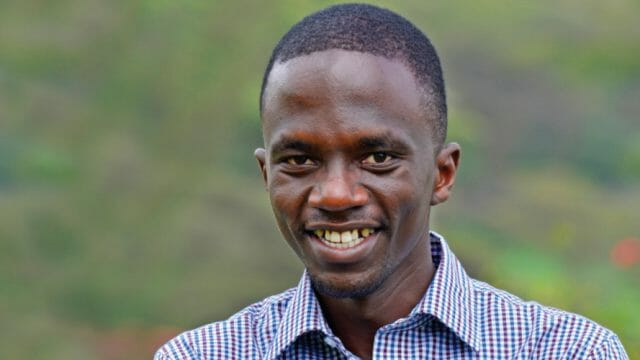UChicago Medicine AdventHealth is using data-driven strategies to foster equality.

As a surgeon whose practice focuses on the treatment of breast cancer, Kanesha Bryant is all too familiar with health disparities affecting Black Americans.
Although the incidence of breast cancer is lower among Black Americans compared with non-Hispanic White Americans, Black Americans remain 40 percent more likely to die of the disease, said Bryant, of UChicago Medicine AdventHealth in suburban Chicago.
“We attribute this disparity to structural barriers to health equity, more advanced stages at presentation, and differences in molecular subtype, with Black Americans having more aggressive forms of breast cancer,” Bryant said.
Breast cancer mortality is just one example of health disparities affecting Black Americans, who experience higher rates of illness and death across a wide range of health conditions and have a life expectancy four years lower than non-Hispanic White Americans.
Identifying such disparities is a major reason why UChicago Medicine AdventHealth’s four hospitals, along with other AdventHealth hospitals located in nine states, conduct a community health needs assessment. The data from these assessments helps to identify health disparities in the communities they serve. The hospitals work with community-based organizations and public health experts to measure overall community health status, to identify the unique health needs of their community, and to understand any barriers to care that might exist.
“Our efforts are very data-driven,” said Fabiola Zavala, regional director of community health for UChicago Medicine AdventHealth.
Focusing on Access to Care
UChicago Medicine AdventHealth collaborates with a community coalition in each of the three counties it serves to collect health data from resident surveys, focus groups, census data, and other sources. UChicago Medicine AdventHealth separately collects health data for individual zip codes within each hospital’s service area.
“When we analyze this data, we can see where there are health disparities, such as Black Americans having worse outcomes for cancer and chronic diseases as well as diabetes and hypertension,” Zavala said. “Each of our hospitals then develops a community health plan, including strategies for addressing the needs and disparities in its community.”
Completed in 2022, UChicago Medicine AdventHealth’s most recent community health needs assessments identified access to comprehensive, high-quality care for uninsured and underinsured people as a major need across the communities served by the organization.
“Health equity barriers, including timely, high-quality health care access, still persist,” Bryant said. “Black Americans also receive less appropriate treatments than non-Hispanic White Americans.”
Connecting with the Underserved
UChicago Medicine AdventHealth GlenOaks, a hospital in Glendale Heights, Illinois, has sought to improve access to chronic disease screenings and management by offering a free medical mission clinic each June for people who cannot afford health care. In addition to providing health screenings and other medical services, the clinic helps patients connect with a medical home, receive specialty referrals, and gain access to social services and affordable medications through a variety of community partners. A similar medical mission clinic is offered in Willow Springs by UChicago Medicine AdventHealth LaGrange in September.
UChicago Medicine AdventHealth also has taken steps to reduce the stigma surrounding mental health issues among Black and Hispanic/Latino Americans. “Oftentimes mental health isn’t discussed,” Zavala said. To address this issue, UChicago Medicine AdventHealth partnered with the National Alliance for Mental Illness (NAMI) Metro Suburban to offer Mental Health First Aid training for faith leaders.
“They often are the first professional help people get,” Zavala said. “Through this training, we want to empower faith leaders and the faith community to recognize the signs and symptoms of mental illness, to learn how to react to it, and to know about the community resources that can help people with mental health issues.”
Managing Chronic Diseases
To help patients with chronic diseases avoid repeated hospital stays, UChicago Medicine AdventHealth works closely with community partners that offer evidence-based chronic disease management programs. “If we have a patient who has been hospitalized because of complications of diabetes, for example, we want to make sure that when they leave the hospital, they’re equipped not only with the appropriate medication but also with information about these community resources so they can manage their disease,” Zavala said. “Partnering with these community-based organizations is really impactful.”
UChicago Medicine AdventHealth recently augmented these efforts by launching a health equity plan aimed at mitigating disparities in inpatient outcomes. The plan is an outgrowth of a 2022 health equity assessment that was part of a systemwide AdventHealth initiative aimed at identifying and addressing such disparities at its facilities. Under the plan, UChicago Medicine AdventHealth has hired a community health worker to counsel inpatients whose case managers and social workers have determined need help with addressing social determinants of health, such as food or housing insecurity, managing a chronic disease, paying for medications, receiving nutrition education, or addressing issues such as alcohol and substance misuse.
“The community health worker engages with the patient before they are discharged to ensure they have the resources to address their needs,” Zavala said. “In the long run, we expect to show improved health outcomes for patients because the community health worker also will follow up with patients at different intervals after they leave the hospital.”
Reducing health disparities, Zavala added, “is a journey, and we are committed to using the data we collect to identify those disparities and to address them within our inpatient community and the community at large.”
The original version of this story was posted by the Lake Union Herald.










